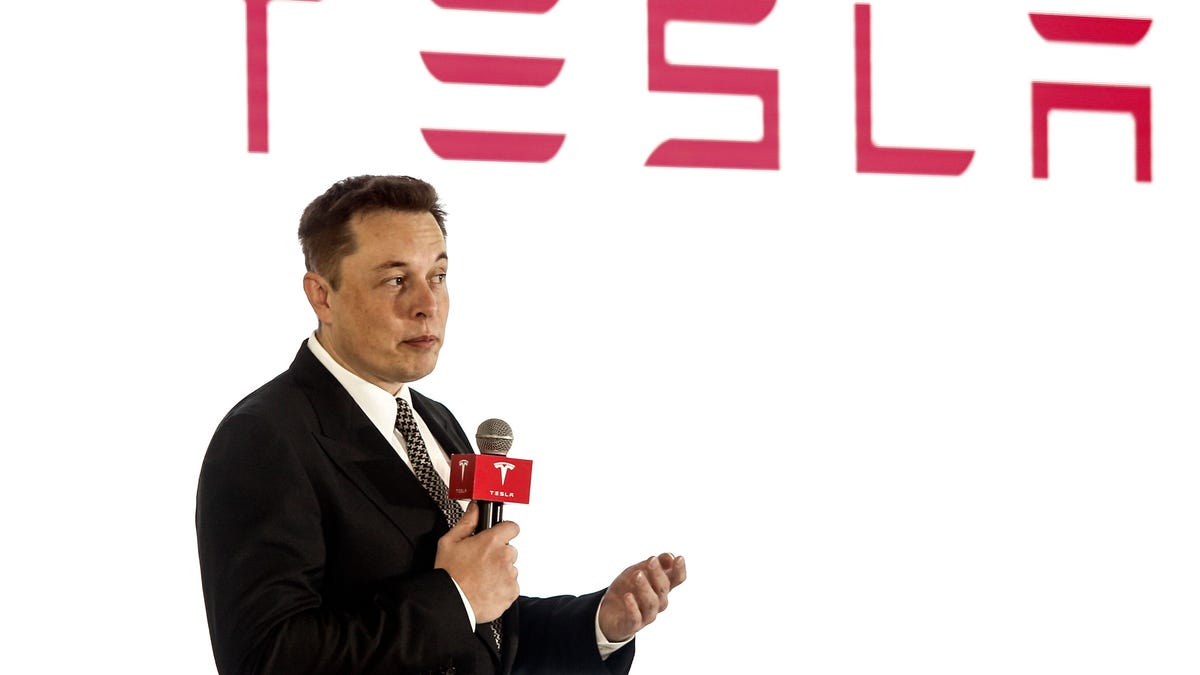Tesla Sold $936M of Bitcoin, Kept its Dogecoin Reserves
Tesla sold 75% of its bitcoin reserves, but CEO Elon Musk says the company hasn't sold any of its Dogecoin.

Elon Musk is an icon within crypto. That's due in large part to his association with the dogecoin meme token -- for a few months last year Musk was known as the "Dogefather" -- but it's also because Tesla is one of the most prominent institutional investors in bitcoin. Or at least, it was.
In Tesla's latest earnings report, released Wednesday, the company revealed it has sold the majority of its bitcoin: "We have converted approximately 75% of our Bitcoin purchases into fiat currency. Conversions in Q2 added $936M of cash to our balance sheet."
In a subsequent earnings call, Musk explained the sell-off was related to ongoing COVID lockdowns in China, the world's biggest car market and also where many Tesla vehicles are manufactured.
"The reason we sold a bunch of our bitcoin holdings is we were uncertain as to when the covid lockdowns in China would alleviate, so it was important for us to maximize our cash position given the uncertainty," Musk said. "We are certainly open to increasing our bitcoin holdings in future, so this should not be taken as some verdict of bitcoin."
"We have not sold any of our dogecoin, we still have our dogecoin," Musk added.
Tesla has $621 million in cash, according to Wednesday's earnings report, which means it would have been cash flow negative were it not for the $936 million bitcoin sale.
Tesla's $1.5 billion purchase of bitcoin, revealed in an SEC filing in February 2021, contributed to the market's euphoria for cryptocurrency that caused bitcoin's price to explode from around $20,000 in December 2020 to $60,000 in March 2021. Tesla's reserves of bitcoin at one point hit a high of $2 billion in value. Tesla originally bought bitcoin to "provide us with more flexibility to further diversify and maximize returns on our cash," the company said in its 2021 SEC filing.
Spurred in large part by tweets of encouragement from Musk, dogecoin hit 70 cents last May and briefly reached a marketcap of $70 billion. It's not known how much dogecoin Tesla owns, though the company's earning report states it holds $218 million in digital assets. Much of that is likely to be Tesla's remaining bitcoin.
So Tesla has already sold off their inventory, appears to have mainly done so to maintain positive cash flow (non bitcoin-centric reasons), and still has 25% of their BTC.
— Will Clemente (@WClementeIII) July 20, 2022
Maybe I’m coping but seems like a nothingburger.
Elon Musk sells 75% of Bitcoin
— Ash WSB (@ashwsbreal) July 20, 2022
3AC and Celsius liquidated
Only bull standing is saylor
Elon Musk apparently isn’t trying to hodl Tesla’s #Bitcoin during crypto winter. Tesla dumped 75% of its Bitcoin holdings in Q2. Comp appears to have lost ~$150mn on its bet in cryptocurrency since 2021 purchase, selling coins for $963mln. value of remaining digital assets $218mn pic.twitter.com/pDfUsq6Rm1
— Holger Zschaepitz (@Schuldensuehner) July 20, 2022
Crypto prices have since fallen precipitously from their 2021 highs. Bitcoin is down 48% since the year began, while ether, the second biggest crypto, has fallen 57% since Jan. 1. Dogecoin is currently sitting at just above 7 cents.
Though Musk is championed by bitcoin and crypto communities, he's made statements both touting and criticizing the technology. "Bitcoin is almost as bs as fiat money. The key word is 'almost,'" he said in February. "However, when fiat currency has negative real interest, only a fool wouldn't look elsewhere."
After announcing that Tesla would accept bitcoin as payment for its electric cars, Musk reneged and said it would pause such payments out of environmental concerns, given the amount of fossil fuel-fired energy its production requires. "Cryptocurrency is a good idea on many levels and we believe it has a promising future, but this cannot come at great cost to the environment," he tweeted.
Tesla didn't respond to a request for additional comment.
Correction: This story initially misstated the amount of cash Tesla got for its sale of cryptocurrency. The company gained $936 million in cash through the transaction.

